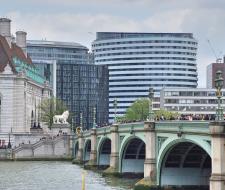A-Level in London 2026
-
 In 2023 100% of students achieved A*– B grades at A-level
In 2023 100% of students achieved A*– B grades at A-level United KingdomLondonCurrently watching: 6from 37600.00 £ / yearProgram namedateAgeFeesShow all courses (7)A-Level programLast booking 6 weeks agoAll year round16-18
United KingdomLondonCurrently watching: 6from 37600.00 £ / yearProgram namedateAgeFeesShow all courses (7)A-Level programLast booking 6 weeks agoAll year round16-18 -
 In 2023 – 37.5% of A-level students achieved A* - A.
In 2023 – 37.5% of A-level students achieved A* - A. United KingdomLondonCurrently watching: 9from 12300.00 £ / term
United KingdomLondonCurrently watching: 9from 12300.00 £ / term -
 In 2021 - 66% of A Level students achieved A*-A
In 2021 - 66% of A Level students achieved A*-A United KingdomLondonCurrently watching: 8from 19785.00 £ / term
United KingdomLondonCurrently watching: 8from 19785.00 £ / term -
 In 2023, in University Foundation Programme 50% of students achieved an A*- A
In 2023, in University Foundation Programme 50% of students achieved an A*- A United KingdomLondonCurrently watching: 7from 12458.00 £ / termProgram namedateAgeFeesShow all courses (6)A-Level programLast booking 3 weeks agoAll year round16-18
United KingdomLondonCurrently watching: 7from 12458.00 £ / termProgram namedateAgeFeesShow all courses (6)A-Level programLast booking 3 weeks agoAll year round16-18 -
 All students holding Oxbridge places met their offers
All students holding Oxbridge places met their offers United KingdomLondonCurrently watching: 10from 16240.00 £ / termProgram namedateAgeFeesShow all courses (2)A-Level programLast booking 2 weeks agoAll year round16-18
United KingdomLondonCurrently watching: 10from 16240.00 £ / termProgram namedateAgeFeesShow all courses (2)A-Level programLast booking 2 weeks agoAll year round16-18 -
 In 2023 - 84% of A Level students achieved A* - A
In 2023 - 84% of A Level students achieved A* - A United KingdomLondonCurrently watching: 7from 13869.00 £ / term
United KingdomLondonCurrently watching: 7from 13869.00 £ / term -
 In 2023 - 21% of A Level students achieved A* grade
In 2023 - 21% of A Level students achieved A* grade United KingdomLondonCurrently watching: 6from 46800.00 £ / yearProgram namedateAgeFeesShow all courses (6)A-Level programLast booking 3 weeks agoAll year round16-18
United KingdomLondonCurrently watching: 6from 46800.00 £ / yearProgram namedateAgeFeesShow all courses (6)A-Level programLast booking 3 weeks agoAll year round16-18 -
 133 place in the best boarding schools in the UK
133 place in the best boarding schools in the UK United KingdomLondonCurrently watching: 9from 13455.00 £ / term
United KingdomLondonCurrently watching: 9from 13455.00 £ / term -
 Ashbourne students consistently achieve excellent A level results, 53% A*A in 2023, far ex
Ashbourne students consistently achieve excellent A level results, 53% A*A in 2023, far ex United KingdomLondonCurrently watching: 10from 10250.00 £ / termProgram namedateAgeFeesShow all courses (2)A-Level programLast booking 6 weeks agoAll year round16-18
United KingdomLondonCurrently watching: 10from 10250.00 £ / termProgram namedateAgeFeesShow all courses (2)A-Level programLast booking 6 weeks agoAll year round16-18 -
 In 2023 - near 38% of A Level students achieved A*-A grades
In 2023 - near 38% of A Level students achieved A*-A grades United KingdomLondonCurrently watching: 6from 12500.00 £ / termProgram namedateAgeFeesShow all courses (3)A-Level programLast booking 6 weeks agoAll year round16-18
United KingdomLondonCurrently watching: 6from 12500.00 £ / termProgram namedateAgeFeesShow all courses (3)A-Level programLast booking 6 weeks agoAll year round16-18
A-level is a popular preparatory program and the final stage of upper secondary education in the UK. A-level graduates can expect to successfully enter any UK and most other overseas universities. 90% of preparatory schools in London offer this model of preparation for university admission.
For the English and Scottish, studying at A-level is a prerequisite, without which it will not be possible to enter a university; For everyone else, this is an opportunity to get the necessary "extra" year, an opportunity to significantly increase the chances of success.
The A-level consists of two stages, each lasting a year. The first is the 12th grade of secondary school, it is usually called Advanced Subsidiary (AS), and the second (13th) is just called A-Levels (or A2). After completing a two-year course, students are given A-levels (although in order to get a certificate, they first have to pass exams, which serve as a pass to the academic world of the UK).
Alternative destinations
A-level schools in London: advantages
- In-depth specialized training
Students of schools with A-levels in London take 3 or 4 disciplines to study, and the choice is unlimited. This model allows you to focus on the main thing, without being distracted by insignificant details, and prepare for admission to the chosen university. Figuratively speaking, "techies" will be spared the need to study philology or work in history lessons, and humanitarians, on the contrary, will not be threatened by in-depth mathematics or physics.
It is also believed that A-level disciplines are studied at a deeper level compared to the International Baccalaureate (IB), but this is a debatable issue, experts do not come to a consensus here.
- Transport accessibility
From the British capital, you can reach Luton, Heathrow, or Stansted in half an hour to an hour, and the rest of the United Kingdom can be reached by rail or a convenient bus network. And London's public transport system is very well designed.
- A variety of leisure activities
Studying at an A-level school in London is not only an excellent prospect of admission to any university, but also the opportunity to get to know one of the world's capitals with all its museums, theaters, exhibition centers, nightclubs and other places, which promises a life full of emotions and impressions for every student.
- Ability to level out academic differences
To enter a British university, you need 12 years of education. A-level will be an excellent alternative to preparatory programs, especially since the admissions committee highly values this type of diploma, they will not even look at the fact that you did not finish primary and secondary school in the UK.
- Huge range of items to choose from
Studying under the A-level program in London is an opportunity to choose a course to your liking from more than 80 subjects: from dozens of modern foreign languages (both European, Asian or African) to art history and mathematics and physics.
- Valuable practical skills and soft skills are integrated into the course
In the upper grades of an English school, they do not cram — they teach them to conduct research, hone critical thinking and academic writing skills, correct formatting of sources and borrowings, and bibliography. In a word, the researcher's toolkit in all its diversity!
- Excellent prospects
90% of graduates enter the world's best universities, and not only British ones, because A-level exams are also quoted in the USA and Canada, most European countries, India, Australia, New Zealand and dozens of other countries.
A-level schools in London: disadvantages and features
- High prices
The UK has never had the reputation of having cheap secondary education, and London schools rank fourth after Cambridge, Brighton and Oxford respectively. The average cost of an A-level in London for a year of study without accommodation and other expenses is at least $42,000 .
- Traffic jams and poor ecology
London is a huge metropolis where traffic jams often occur, and the environmental situation leaves much to be desired. If fresh air is a significant factor for you, it makes sense to take a closer look at schools in other parts of the country, in rural areas and more remote areas from megacities.
- Age restrictions
You can enroll in the A-level program from the age of 15.5, but a foreigner can live independently in the UK only from the age of 18 - before that, you need the services of a professional guardian with British citizenship.
- Specifics of the A-level format
Already at the application stage, the student needs to know which subjects they will take at the A-level. In many schools, there is a limit of 3, maximum 4 specialized subjects, and in a global sense, it will not be possible to correct/change the direction, only if you start everything from the very beginning.
A-level VS International Baccalaureate
In British schools, there are 2 options for preparatory secondary education programs - A-level and IB. Each of them allows expat students to enter a British university without additional exams and checks. Formally, the programs are similar, but there are several noticeable differences between them.
- For example, the IB is distinctly interdisciplinary, provides for compulsory disciplines in the form of an extended essay and theory of knowledge, and not 3-4 subjects, as at A-level, but 6.
- If at A-level a single exam is taken in writing, then at IB each discipline has its own format: tests can take the form of a laboratory study or essay, be conducted in oral or written format.
In general, we can say that A-level is suitable for those who already know what they want from life and have planned the future for several years ahead. The IB is famous for being a more versatile course.
A-level in London: what subjects can I choose?
Students of the program have access to 3 to 4 elective disciplines, and along with general education courses, students have access to many foreign languages, and quite specific courses such as the history of religions, "Arts, Design and Handmade", the history of English literature, medieval studies.
EPQ – Extended Project Qualification – should be mentioned separately. Within this discipline, students are asked to choose a research topic and a project format (within a fairly wide range) and engage in work in this direction. In the course of working on the project, students will have to learn how to manage their time, compile lists of references, search and process information. In some schools, EPQ is on a par with other disciplines, while others offer to take it as an additional, fourth subject of the A-level course.
There are no mandatory courses — it all depends on what the student is interested in and what requirements the chosen university imposes on the applicant.
A-level assessment. Exams
At the end of the course, students will have to pass unified exams, which are conducted by a special commission accredited by the British government. It is these grades that will be in the certificate and will be decisive during the admission campaign. Some exams are preceded by testing or tests.
There are 7 grades in total, from A* to U, grades from A* to E are positive and are considered passing.
In the passport of the university program, the requirements for applicants usually look like this: AAA, AAB, etc., which means that for successful admission you must pass exams with the appropriate score (three exams for A, two exams for A + one for B, and so on).
Exams are usually held in the spring, in May, or early June, and the results are sent in the last decade of August, much like the results of the OWL in the Harry Potter books!
Admission to the A-level program
You will need:
- transcript of school grades for the last 2 academic periods,
- a copy of your passport,
- application
- IELTS or TOEFL results — 5.0-6.0 or 47-93, respectively (each school has its own requirements for applicants, there are no universal standards).
Also, applicants need to pass an interview or entrance exams.
The application is submitted according to the school form and includes information about the selected subjects (3 or 4). After applying, you can change something or even add one discipline, and the admissions committee and course selection specialist will tell you which choice will best meet your goals and objectives.
There are no strict deadlines for submitting applications - documents can be submitted at any time during the year, but applications will be processed as they are received. If the school is elite and rated, it often forms a queue, in some A-level schools in London it reaches one and a half to two years.
Learning programs-summary information
| Name | Meaning | Equivalent | Min. age | Duration, years |
Next stage | Cost |
|---|---|---|---|---|---|---|
| GCSE | General certificate of secondary education | secondary education (non-accomplished) | 14 | 1–2 | A-Levels | 15,000 USD+ |
| A-Levels | Advanced level | secondary education (accomplished) | 16 | 2 | University | 15,000 USD+ |
| BTEC | Business and Technology Education Board | secondary special education | 14 | 2–3 | University/ work | 15,000 USD+ |
| Oxbridge Preparation | Preparing for Oxford and Cambridge | secondary education (accomplished) | 17 | 1 | University | 15,000 USD+ |
| International Baccalaureate | International baccalaureate | secondary education (accomplished) | 16 | 2 | University | 18,000 USD+ |
| Foundation/ Pathway Year | Preparatory year | admission to the 1st year of university | 17 | 1 | University | 14,000 USD+ |
| NCUK | The Northern consortium | 2 year university | 17,5 | 1 | 2 year University of NCUK | 13,000 USD+ |
| Special Preparation (Medics/Math/Business) | Specialized training | - | 14 | optional | optional | 4,000 USD+ |
| Academic English | Academic English | Language school | 8 + | 6–12 months | School or University | 8,000 USD+ |
Advantages and disadvantages of English schools
| Advantages | Disadvantages |
|---|---|
| The opportunity to enter the best universities in England, USA, Canada, Switzerland, Europe, the world | Expensive |
| High quality of education and academic standards | Strong workload |
| Perfect English after graduation | The need to change the social environment; it takes time to adapt |
| Useful contacts | The difficulty of choosing the most suitable school for the child, requires a qualified specialist |
Top 21 boarding colleges in England 2026
| 1 | Cardiff Sixth Form College |
| 2 | National Mathematics and Science College |
| 3 | Abbey College Cambridge |
| 4 | d'Overbroeck's College |
| 5 | MPW London |
| 6 | CATS Cambridge |
| 7 | Kensington Park |
| 8 | DLD London |
| 9 | King's College St Michael’s |
| 10 | Bellerbys Cambridge |
| 11 | Chelsea Independent College |
| 12 | MPW Cambridge |
| 13 | Bellerbys Brighton |
| 14 | CATS London |
| 15 | St Clare's Oxford |
| 16 | Bishopstrow College |
| 17 | CATS Canterbury |
| 18 | Bellerbys London |
| 19 | Ealing Independent College |
| 20 | Cambridge Tutors College |
| 21 | Abbey Manchester |
